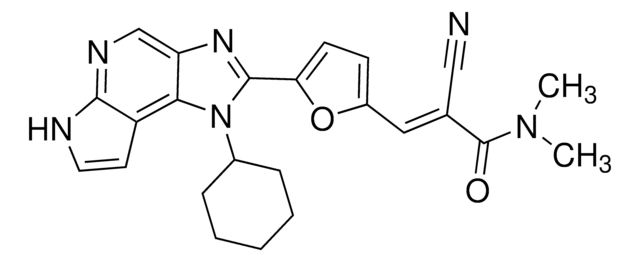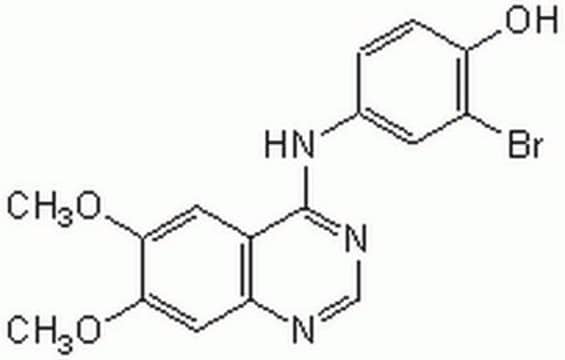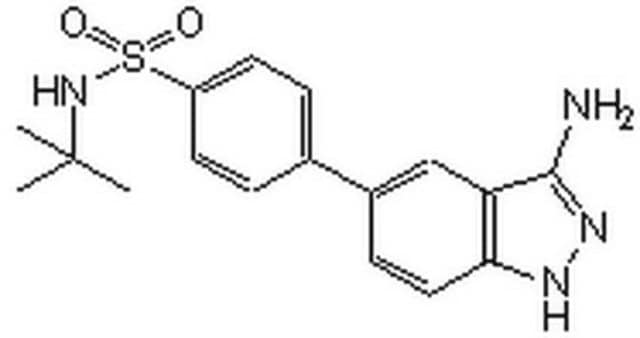420097
JAK Inhibitor I
InSolution, ≥98%
Synonyme(s) :
InSolution JAK Inhibitor I, 2-(1,1-Dimethylethyl)-9-fluoro-3,6-dihydro-7H-benz[h]-imidaz[4,5-f]isoquinolin-7-one, P6, Pyridone 6, DBI, JAK1 Inhibitor I, JAK2 Inhibitor I, JAK3 Inhibitor X
About This Item
Produits recommandés
Niveau de qualité
Pureté
≥98% (HPLC)
Forme
liquid
Fabricant/nom de marque
Calbiochem®
Conditions de stockage
OK to freeze
desiccated (hygroscopic)
protect from light
Conditions d'expédition
wet ice
Température de stockage
2-8°C
InChI
1S/C18H16FN3O/c1-18(2,3)17-21-14-10-5-4-9(19)8-12(10)13-11(15(14)22-17)6-7-20-16(13)23/h4-8H,1-3H3,(H,20,23)(H,21,22)
Clé InChI
VNDWQCSOSCCWIP-UHFFFAOYSA-N
Description générale
Actions biochimiques/physiologiques
murine JAK1
Conditionnement
Avertissement
Forme physique
Reconstitution
Autres remarques
Informations légales
Code de la classe de stockage
10 - Combustible liquids
Classe de danger pour l'eau (WGK)
WGK 2
Point d'éclair (°F)
188.6 °F - closed cup - (Dimethylsulfoxide)
Point d'éclair (°C)
87 °C - closed cup - (Dimethylsulfoxide)
Certificats d'analyse (COA)
Recherchez un Certificats d'analyse (COA) en saisissant le numéro de lot du produit. Les numéros de lot figurent sur l'étiquette du produit après les mots "Lot" ou "Batch".
Déjà en possession de ce produit ?
Retrouvez la documentation relative aux produits que vous avez récemment achetés dans la Bibliothèque de documents.
Notre équipe de scientifiques dispose d'une expérience dans tous les secteurs de la recherche, notamment en sciences de la vie, science des matériaux, synthèse chimique, chromatographie, analyse et dans de nombreux autres domaines..
Contacter notre Service technique








